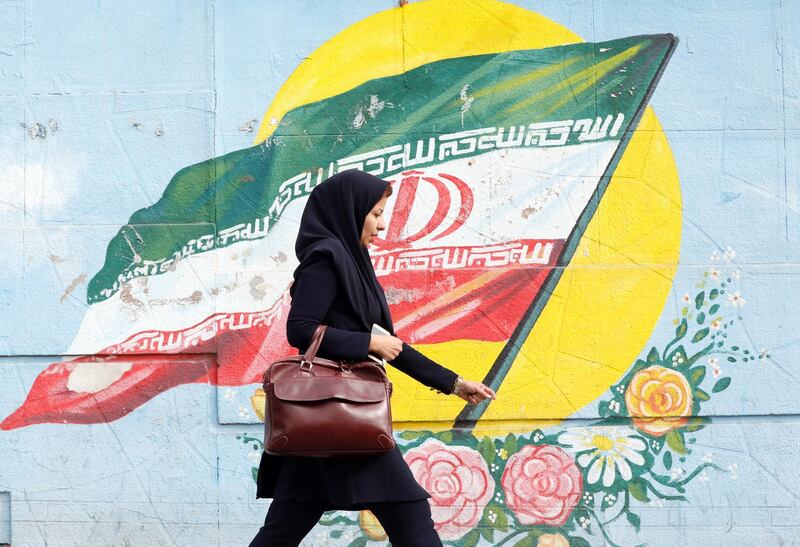Iranians will wake up to a darker world today – but they have only their regime to blame. Months after US President Donald Trump abandoned the flawed 2015 Iran nuclear deal, the second round of punitive sanctions takes effect. The Iranian economy was already struggling, with the rial's value plummeting 70 per cent in the past year, but the latest sanctions on oil, finance and banking will hit hardest. And neglected for years by their rulers, ordinary Iranians are already feeling the pinch.
This could have been avoided. The nuclear deal, signed by Mr Trump’s predecessor Barack Obama, liberated hundreds of millions of dollars for the Iranian regime. But rather than spending the revenue on its people, by improving public services and growing the economy, Tehran ramped up its military adventures in Syria, Yemen, Lebanon and Iraq.
No longer can Iran be allowed to destabilise the region while its people struggle to get by. “Our objective is to force the regime into a clear choice,” said Mr Trump. “Either abandon its destructive behaviour or continue down the path toward economic disaster.”
Sanctions provide a vital middle ground between diplomacy – which is fruitless with a bull-headed Iranian regime – and unpopular costly wars. But they do not work in isolation. Already eight countries have been issued waivers – among them Turkey and Iraq – to temporarily continue buying Iranian crude oil, while Russia and China will continue to trade in it. Meanwhile, the Iranian people will no doubt suffer as a result.
While Mr Trump has been adamant that food and medicine should not be affected, unscrupulous individuals have already begun hoarding vital supplies, while Iran’s central bank admitted that food prices rose 46.5 per cent in the year to September.
The regime will seek to exculpate itself by blaming the economic hardships its people are already experiencing on the sanctions, but remaining defiant under these new restrictions will prove difficult. True to form, Iranian President Hassan Rouhani has already chided foreign media for “filling people’s minds with false propaganda”.
Any measures to curb a power that is backing Houthi rebels in Yemen, preserving the Syrian regime and arrogating Lebanese institutions, are welcome. Mr Trump might partially be motivated by his desire to undo his predecessor’s achievements − these sanctions come into effect just one day before the vital midterm elections − but he must hold firm in the coming months. And sanctions must be part of a wider policy that encompasses Syria, Iraq, Lebanon and Yemen, and that draws the support of other regional powers.
Because if they do not curb Tehran’s behaviour, their only victim will be the blameless Iranian people, who have fallen casualty to their own government’s arrogance for far too long.





